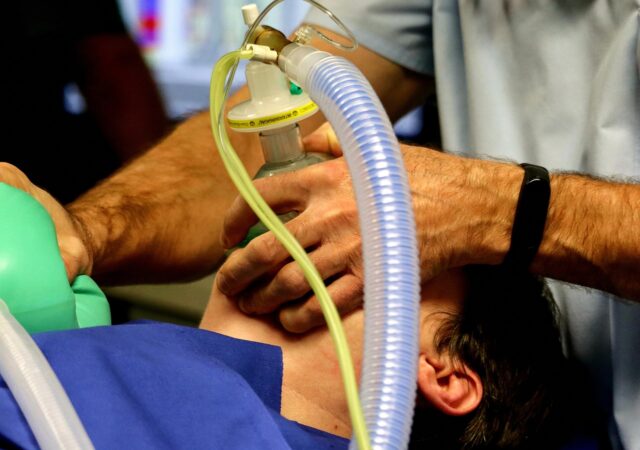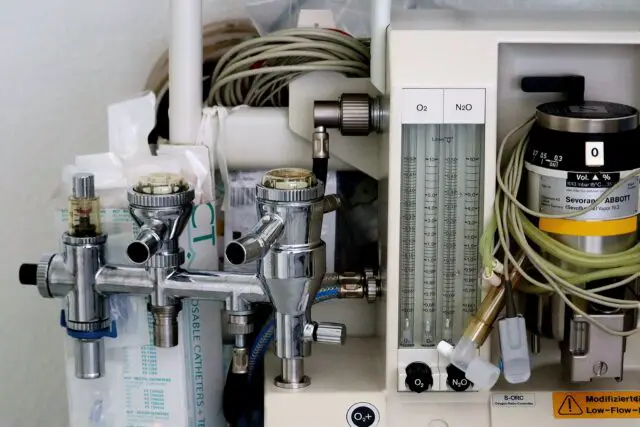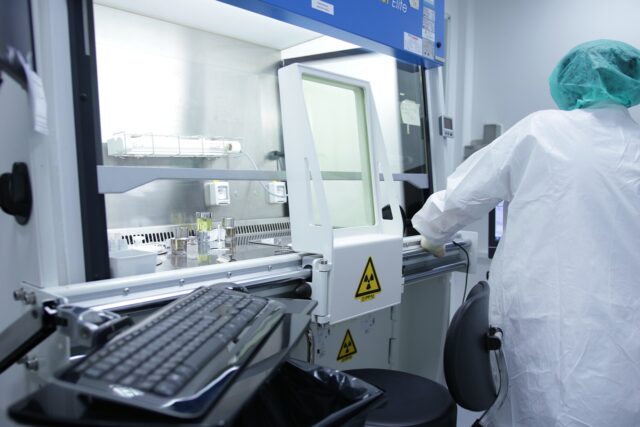If you are interested in an Anesthesiologist job description, you may know an anesthesiologist is a highly specialized medical professional who is responsible for administering anesthetic drugs to patients during medical procedures.
To be a successful professional in this career, you must have the highest levels of education, experience, and knowledge. This ensures that you have the necessary skills to tackle any challenge that comes your way.
Let’s discuss the job of an anesthesiologist and give you a thorough overview of the significant duties and responsibilities.
What is an Anesthesiologist?
An anesthesiologist is an expert in administering drugs for anesthesia during medical procedures. In simpler terms, they are doctors who specialize in delivering reliable and safe anesthesia to patients.
This person plays an integral role in guaranteeing the patient’s safety by vigilantly tracking and monitoring their vital signs, as well as expertly administering anesthetic agents.
Medical professionals must have an in-depth understanding of the field and be able to make decisions swiftly and precisely.
Anesthesiologist Job Duties and Responsibilities
An anesthesiologist is responsible for a variety of tasks, including:
Monitoring Patient Vital Signs – An anesthesiologist is tasked with a very important job. You have to monitor the patient’s vital signs throughout the entire procedure. This includes keeping track of heart rate, blood pressure, breathing, and oxygen levels. They must also be ready to take action in case there is any sudden change in the patient’s condition.
Administering Anesthetic Drugs – Administering anesthetics to patients is an important responsibility. An anesthesiologist must not only be familiar with the appropriate dosages but also have the ability to adjust them depending on the situation. Being knowledgeable and prepared is key to providing safe and effective care!
Communicating with the Patient – An anesthesiologist needs excellent communication skills to ensure the patient is comfortable and informed of potential developments throughout the procedure. This role also requires you to be able to explain complex concepts in a simple way that patients can understand.
Maintaining Patient Records – You must also keep detailed records of the patient’s medical history, including any medications and treatments administered. An anesthesiologist must also keep track of the patient’s progress throughout the procedure.
Educating Patients on Anesthetic Drugs – An anesthesiologist must be able to educate patients on the anesthetic drugs they will be receiving and explain the possible side effects of the drugs. They have to be able to answer any questions the patient may have regarding the anesthetic drugs.
Communicating with Other Medical Professionals – Communicating effectively with other medical professionals, such as surgeons, nurses, and physicians is a must. They must be able to provide updates on the patient’s condition and ensure that all medical professionals involved in the procedure are aware of any changes that may occur.
Staying Up-to-Date with Anesthetic Practices – An anesthesiologist must stay up-to-date on the latest advances in anesthetic practices. He or she has to be knowledgeable in the latest techniques and be able to apply them in a safe and effective manner.
Anesthesiologist Job Requirements and Qualifications
An anesthesiologist must possess the following qualifications and requirements:
Medical Degree – from an accredited medical school. You must also have completed a residency in anesthesiology.
Board Certification – be board certified in anesthesiology. This certification must be obtained from a recognized organization, such as the American Board of Anesthesiology.
Licensure – you have to be licensed to practice in the state where you will be working. Licensure requirements vary by state. So, it is important to check the requirements for the state in which you will be practicing.
Clinical Experience – you need to have clinical experience in the field of anesthesiology. An anesthesiologist must be knowledgeable in the use of anesthetic drugs and be able to administer them in a safe and effective manner.
Excellent Communication Skills – excellent communication skills are absolutely required. An anesthesiologist must be able to communicate effectively with patients, other medical professionals, and staff members.
Attention to Detail – be detail-oriented and be able to pay close attention to the patient’s vital signs. An anesthesiologist must also be able to recognize any changes in the patient’s condition and act quickly and appropriately.
Decision-Making Skills – the ability to make decisions quickly and accurately is required. You must be able to assess the patient’s condition and make decisions on the best course of action.
Anesthesiologist Education Requirements
An anesthesiologist must possess a medical degree from an accredited medical school and must be board certified in anesthesiology.
A career in this field allows you to be a highly specialized medical professional who is responsible for administering anesthetic drugs to patients during medical procedures. You need to be highly educated, experienced, and possess a great deal of knowledge in the field.
Anesthesiologist Salary
If you’re curious about the salary of an anesthesiologist, the salary varies depending on experience, location, and specialty. The average salary for an anesthesiologist is around $286,000 per year.
Anesthesiologist Job Outlook
Anesthesiologists are in high demand due to the increasing aging population and the need for medical procedures that require sedation. They are responsible for administering anesthesia and monitoring a patient’s vital signs during surgery.
They also need to make sure that the patient is safe and comfortable during the procedure. The work is typically performed in surgical centers, hospitals, and medical offices.
With the steady growth of the healthcare industry, the demand for anesthesiologists is expected to remain strong. In addition, advances in medical technology and the development of new treatments for pain management are also likely to increase the demand for anesthesiologists.
The job outlook for anesthesiologists is incredibly exciting! With the growing demand for people to work in this career, the field is poised for growth in the coming years.
Anesthesiologist Career Opportunities
Anesthesiologists can work in various settings. These include hospitals, clinics, and private practices, and can specialize in different areas, such as trauma care and pediatric anesthesiology.
Anesthesiologist Work Conditions
Anesthesiologists work in a variety of work conditions and settings, from the operating room to the delivery room, and from the ICU to the ER. Anesthesiologists are responsible for caring for patients who require general, regional, and local anesthesia prior to and during medical procedures, including surgery.
People in this profession often have challenging working conditions, such as long hours, tight spaces, and having to manage life-threatening situations. However, they play an essential role in keeping patients safe and comfortable during medical procedures.
Anesthesiologists must have excellent communication and teamwork skills, as they work closely with surgeons and other medical professionals to ensure the safety of their patients.
As such, anesthesiologists must also be able to make quick decisions in difficult situations and be comfortable with making life-or-death decisions.
This career calls for someone who can keep a calm, professional demeanor in stressful situations. They must also be careful to maintain their own physical and mental well-being, as their work often involves high levels of stress and long hours.
Anesthesiologists don’t just work in medical settings; they can also bring their expertise to research, teaching, or consulting roles. These tasks involve spending long hours in a lab and require exceptional problem-solving and organizational skills.
Anesthesiologists are an integral part of patient care and must be comfortable making life-altering decisions. They must also be available to provide emergency care 24/7 and are expected to always stay on call.
The work can be both thrilling and exhausting. This is a career that requires a person to have a vast knowledge of medical procedures and the ability to think quickly on their feet.
A career as an anesthesiologist demands dedication and a focus on ensuring the best comfort and safety for patients. It is an amazing opportunity to make a difference in people’s lives each day.





